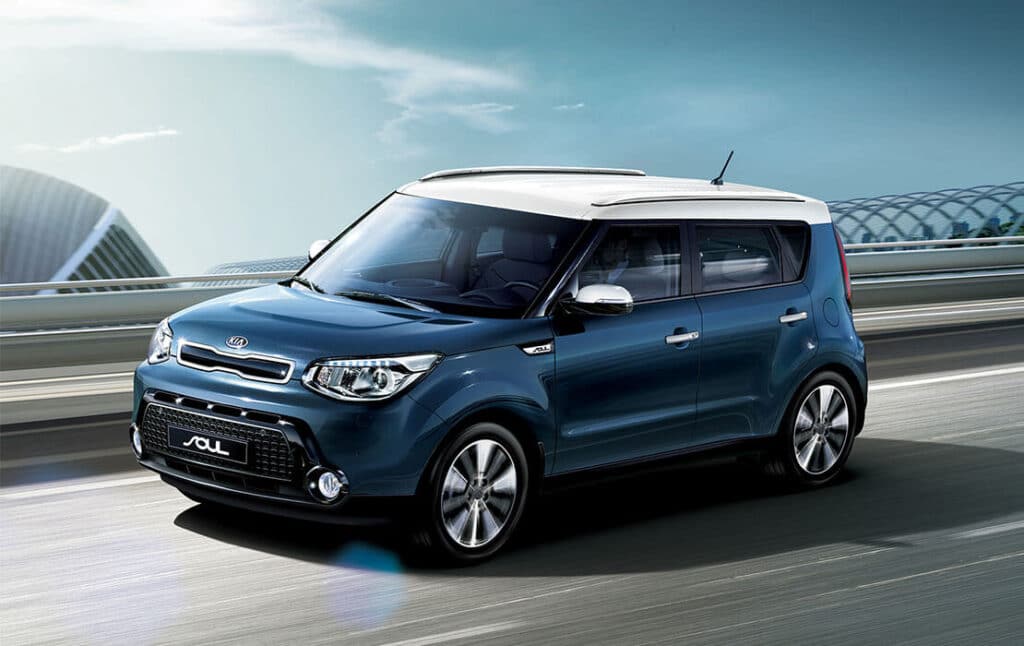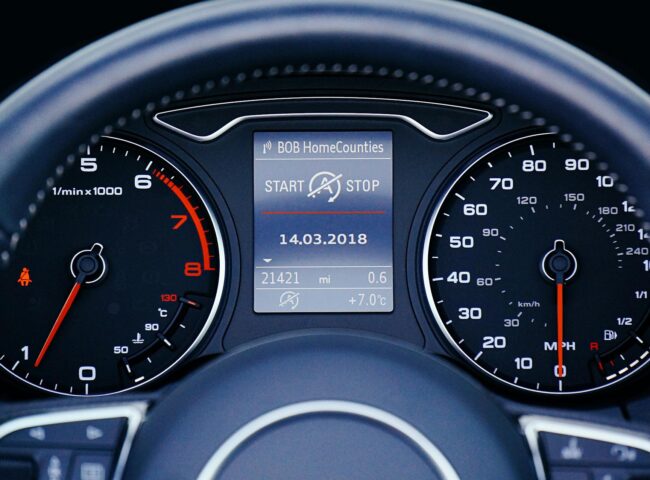Looking for a good warranty for used cars? This guide breaks down the best options for ensuring peace of mind and covering unexpected repairs. We’ll explore top providers, types of warranties, and how to choose the right one for your needs.
Overview
In 2024, top used car warranty providers like Carchex, Endurance, and CarShield offer a variety of comprehensive and flexible plans tailored to different needs and budgets.
Understanding the different types of warranties, such as bumper-to-bumper, powertrain, and drivetrain warranties, is essential for selecting the right coverage for your vehicle.
Certified Pre-Owned (CPO) warranties from manufacturers like Hyundai, Kia, and Mitsubishi provide extended factory coverage and additional benefits, adding significant value for used car buyers.
Top Used Car Warranty Providers in 2024

Navigating the world of used car warranties can feel overwhelming, but knowing the top providers in 2024 can help streamline your decision-making process. The leading car warranty company and other top providers in the industry are:
- Carchex
- Endurance
- Rapid Auto Protection
- CarShield
- Omega Auto Care
- Olive
- Toco
- Concord Auto Protect
They offer a range of coverage options for vehicle protection. These companies are renowned for their comprehensive vehicle service contracts and flexible plans that cater to a wide range of needs and budgets.
Carchex, in particular, has built a robust reputation in the industry, offering a plethora of plans that can be tailored to fit different financial situations. Their commitment to consumer satisfaction has earned them the top spot as the best provider of used car coverage plans based on extensive research. Endurance, another heavyweight in the aftermarket warranty space, stands out by offering direct-to-consumer contracts, which can often lead to cost savings by cutting out the middleman.
CarShield is lauded for its variety of coverage options and the flexibility it offers regarding vehicle eligibility. Whether you have a high-mileage vehicle or a newer model, CarShield is likely to have a plan that meets your needs. Olive, on the other hand, differentiates itself with an entirely online process, making it incredibly convenient for customers to purchase and manage their warranties.
Rapid Auto Protection is another notable provider in the used car warranty industry. They are known for offering competitive pricing and a variety of plans that cater to different types of vehicles and owner needs. Their customer service is often praised for being responsive and helpful, ensuring that policyholders can easily navigate their coverage options and claims process. With Rapid Auto Protection, you can expect tailored plans that provide essential coverage while keeping costs manageable.
Omega Auto Care offers specialized plans that cater to high-mileage vehicles, providing those with older cars the assurance that they won’t be left high and dry when their vehicle needs repairs. Toco and Concord Auto Protect round out the list, each bringing unique strengths to the table, such as affordable plans and excellent customer service.
Choosing the right car warranty provider involves comparing vehicle service contracts, understanding the specifics of each plan, and considering what additional benefits each company offers. By starting with these top providers, you’re already on the right path to securing the best car warranty for your used vehicle.
Understanding Different Types of Used Car Warranties

Grasping the various types of used car warranties is key to choosing the coverage that aligns best with your needs. Primarily, warranties are categorized into bumper-to-bumper, powertrain, and drivetrain warranties, each offering varying levels of protection.
A bumper-to-bumper warranty is the most comprehensive, covering almost every component of the vehicle, including:
- the engine
- the transmission
- the drive axle
- the braking system
- the steering system
This type of warranty, offered by a warranty company, is ideal for those looking for extensive coverage but often comes at a higher cost.
Powertrain warranties, on the other hand, are typically more affordable and cover the essential components that keep your car moving: the engine, transmission, and drive axle. This type of warranty, often referred to as powertrain coverage, is a good choice for those who want to ensure that the critical parts of their vehicle are protected without paying for the full bumper-to-bumper coverage.
Drivetrain warranties focus specifically on components like the transmission, differentials, and driveshaft. While not as comprehensive as bumper-to-bumper warranties, drivetrain warranties still offer significant protection at a lower cost, making them a popular choice among used car owners.
Having a grasp of these various warranty types allows you to better determine which one suits your needs and budget. Whether you prioritize comprehensive protection or essential coverage, there’s a warranty out there designed to meet your requirements.
Certified Pre-Owned (CPO) Warranties

Certified Pre-Owned (CPO) warranties offer a unique blend of extended factory warranty coverage and additional benefits, providing substantial peace of mind for used car buyers. Companies like Mitsubishi, Hyundai, and Kia are recognized for their exceptional CPO programs, each offering various perks that enhance the value of purchasing a CPO vehicle.
Hyundai’s CPO program is particularly impressive, featuring:
- a 10-year/100,000-mile powertrain warranty
- a 5-year/60,000-mile bumper-to-bumper warranty
- a 10-year/unlimited mile roadside assistance plan
- a 10-year/100,000-mile hybrid/EV battery warranty for its certified used vehicles, which must be no older than six model years and have fewer than 80,000 miles
Additionally, each vehicle undergoes a rigorous 173-point inspection to ensure it meets stringent standards, and a complimentary CARFAX® Vehicle History Report is provided to add further assurance.
Kia’s CPO warranty is similarly robust, offering up to 10 years/100,000 miles on the powertrain or 1 year/12,000 miles for Platinum coverage. Kia also includes a 10-year/unlimited miles roadside assistance plan, travel breakdown, and rental car coverage, providing comprehensive support in case of emergencies.
Mitsubishi’s CPO warranty includes a 10-year/100,000-mile powertrain warranty or a 5-year/60,000-mile warranty for all other parts. When you purchase a CPO vehicle from Mitsubishi, you’ll also receive additional benefits such as roadside assistance. This covers flat tire changes, gas delivery, and battery jump-starts, adding further value to your purchase.
These CPO programs not only extend the factory warranty but also offer a range of benefits that make them a compelling option for used car buyers. By opting for a CPO vehicle, you can enjoy the reassurance of extensive coverage and the added perks that come with it.
Extended Warranties and Vehicle Service Contracts
Extended warranties, also known as vehicle service contracts, are designed to cover repair costs beyond what the manufacturer’s warranty includes or after it expires. These contracts can offer significant protection for used car owners, especially when unexpected repairs arise. With extended car warranties, you can have peace of mind knowing that you’re covered in case of unforeseen issues.
One type of extended warranty is the wrap warranty, which extends the original manufacturer’s warranty to cover additional components like the engine and transmission. Depending on the product, some extended warranties offer coverage that rivals bumper-to-bumper warranties, including periodic maintenance, while others focus on specific vehicle systems and exclude certain costly components.
It’s important to note that extended warranties typically exclude routine maintenance such as oil changes and tire replacements. However, the flexibility to cancel these contracts at any time provides an additional layer of security for consumers. The waiting period for most extended warranties is around 30 days and 1,000 miles, ensuring that coverage kicks in after a short initial period.
Extended warranties can be offered by independent providers or directly by automakers, each with its own set of terms and conditions. Additionally, Mechanical Breakdown Insurance (MBI) for used cars, similar to an extended warranty, is available from some car insurance companies like Geico, though it often comes with stricter limitations.
Grasping the intricacies of extended warranties and vehicle service contracts allows used car owners to navigate their options more accurately and select the plan that provides the highest level of protection for their unique needs when purchasing an extended warranty.
Evaluating Warranty Coverage Options

Evaluating warranty coverage options is a critical step in choosing the right protection for your used car. Several factors should be considered to ensure the plan you select meets your vehicle’s needs and offers comprehensive protection.
One of the first aspects to consider is the specific components covered under each car warranty coverage plan. Coverage can range from extensive protection akin to bumper-to-bumper warranties to more limited plans focusing on specific systems like powertrain or drivetrain. Assessing what each plan includes helps align the coverage with your vehicle’s requirements.
Additional perks such as roadside assistance, rental car reimbursement, and trip interruption coverage significantly enhance the value of a warranty plan. Roadside assistance typically includes towing, battery jump-starts, flat tire changes, and emergency fuel delivery, ensuring you’re not stranded during a breakdown. Rental car reimbursement covers the cost of a rental vehicle while your car is being repaired, providing convenience during unexpected repairs.
Trip interruption coverage offers financial assistance for lodging and meals if your car breaks down far from home. These additional benefits can be crucial during emergencies or long trips, adding an extra layer of security and convenience.
Finally, when comparing different warranty options, it’s essential to consider factors like the length of coverage, deductibles, and the overall cost. By thoroughly evaluating these elements, you can make an informed decision that ensures your vehicle is well-protected without breaking the bank.
Cost of Used Car Warranties
The car warranty cost of used car warranties can vary significantly, typically ranging from $1,500 to $4,000. Understanding these costs and the factors that influence them is essential for making an informed decision.
Monthly costs for used car warranties usually fall between $100 and $200, depending on the plan and provider. Extended car warranty costs, in particular, can range between $1,700 and $3,200, with additional upfront fees and potential deductibles to consider. These costs can add up, so it’s crucial to factor them into your overall budget when purchasing a warranty.
Several factors influence the cost of an extended car warranty, including the vehicle’s make, model, mileage, and chosen deductible. For instance, warranties for high-end or luxury vehicles tend to be more expensive due to the higher cost of parts and repairs. Similarly, vehicles with higher mileage may incur higher warranty costs because they are more likely to need repairs.
Comprehending these cost factors enables you to more accurately forecast the financial commitment required when purchasing a used car warranty. This knowledge allows you to compare different plans effectively and choose the one that offers the best value for your specific situation.
Benefits of a Good Used Car Warranty
A good used car warranty offers numerous benefits, providing significant peace of mind and financial protection for car owners. One of the primary advantages is the coverage of unexpected repairs, which can alleviate the stress and worry that often accompany car ownership.
Extended warranties offer the following benefits:
- Protection against expensive repairs caused by defective parts and workmanship
- Assurance that you won’t be left with hefty repair bills
- Added protection against unexpected mechanical failures and repairs
- Help in maintaining your vehicle’s performance and longevity
- Access to extended warranty plans for a more comprehensive coverage
In addition to covering defects, some extended warranties also cover certain wear and tear, offering broader protection than the original factory warranty. This can be particularly valuable for older vehicles or those with high mileage, where the likelihood of wear-related issues increases. Therefore, it might be a good idea to buy an extended warranty for such vehicles.
Additional perks such as roadside assistance, rental car reimbursement, and towing services further enhance the value of a used car warranty. These services provide crucial support during emergencies, ensuring that you’re not left stranded or inconvenienced by unexpected breakdowns.
Ultimately, the peace of mind and financial security provided by a good used car warranty make it a worthwhile investment for many car owners. Selecting the right warranty instills confidence in you while driving, as you know your vehicle is safeguarded against unexpected problems.
How to Buy a Used Car Warranty
Buying a used car warranty involves several steps, each crucial to ensuring you get the best coverage for your needs and budget. The process begins with thorough research on different providers and plans.
Start by researching various car warranty companies and getting multiple quotes to compare their offerings. Understanding and comparing car warranty quotes is essential to know exactly how much you’ll pay for a warranty from a specific plan and provider. This step helps you identify the best deals and the most comprehensive coverage options.
Key factors for consumers include warranty cost, term length, and covered components. When evaluating quotes, consider the level of vehicle protection and the budget for the warranty. If your car has over 200,000 miles, it’s important to note that some companies may not offer coverage, although CarShield covers up to 300,000 miles.
Negotiating an extended warranty on a used car may be possible, especially when shopping at a used car dealer in person or when comparing prices from online providers. Once you’ve chosen a plan, here are some things to consider:
- Read the contract carefully
- Understand the cancellation process
- Decide whether to pay upfront or make monthly payments
- Payment methods vary, with some companies requiring a down payment of up to $300
Adhering to these steps will enable you to obtain a used car warranty that ensures all-encompassing protection without overburdening your budget. This ensures that you are well-prepared for any unexpected repairs that may arise.
Is a Used Car Warranty Worth It?
Deciding whether a used car warranty is worth the investment often comes down to personal preferences and financial stability. For some, the peace of mind that comes with knowing that unexpected repairs are covered is invaluable, while others may prefer to pay for repairs as they arise.
One way to determine if a used car warranty is necessary is by assessing your ability to cover an unexpected repair cost of $1,000 without taking on debt. If this amount would significantly impact your finances, a used car warranty could be a wise investment to mitigate potential financial strain.
The age and condition of your vehicle also play a crucial role in this decision. Older vehicles and those with a higher likelihood of breakdowns may benefit more from the added protection of a warranty. In a 2022 survey, 65% of respondents with extended warranties expressed satisfaction with their coverage, and 57% reported that their warranties had covered necessary repairs.
While some drivers find used car warranties worthwhile for the security they provide, it’s important to weigh the pros and cons based on your specific situation. Considering both financial aspects and the reliability of your vehicle will help you make an informed decision.
Best Practices for Maintaining Your Warranty
Maintaining your used car warranty involves adhering to several best practices to ensure continuous coverage and avoid any potential issues with claims. One of the most critical steps is to follow the manufacturer’s recommended service schedule for regular maintenance.
Keeping detailed service records and receipts from all maintenance activities is essential. These records provide proof that you have properly maintained your vehicle, which can be crucial if you need to make a warranty claim.
It’s also important to know that manufacturers or dealers cannot deny warranty coverage solely because someone other than the dealer performed maintenance or repairs. Dealers must provide evidence that improper repairs caused any damage before denying warranty coverage. Additionally, aftermarket parts can only void warranty claims if they are proven to cause the required repairs.
If you believe a warranty claim has been unfairly denied, escalate the issue to a supervisor, manufacturer, or another dealer. You can also lodge a complaint with consumer protection agencies to seek a resolution.
By following these practices, you can maintain your warranty and ensure your vehicle remains protected.
Summary
Choosing a good warranty for your used car in 2024 involves understanding the different types of warranties, evaluating coverage options, and considering the benefits and costs associated with each plan. The top providers like Carchex, Endurance, CarShield, Omega Auto Care, Olive, Toco, and Concord Auto Protect offer comprehensive and flexible plans to suit various needs and budgets.
A well-chosen warranty can provide significant peace of mind, protecting you from unexpected repair costs and offering additional perks like roadside assistance and rental car coverage. By following best practices for maintaining your warranty and making an informed decision based on your vehicle’s age, condition, and your financial stability, you can ensure that your investment is well-protected.
Ultimately, securing a used car warranty is about finding the right balance between cost and coverage to meet your specific needs. With the knowledge gained from this guide, you’re well-equipped to navigate the options and choose the best warranty for your used car, ensuring a smoother and more secure driving experience.
Frequently Asked Questions
What are the top used car warranty providers in 2024?
The top used car warranty providers in 2024 are Carchex, Endurance, CarShield, Omega Auto Care, Olive, Toco, and Concord Auto Protect.
What types of used car warranties are available?
The main types of used car warranties are bumper-to-bumper, powertrain, and drivetrain warranties, each offering different levels of coverage.
How much does a used car warranty typically cost?
A used car warranty typically costs between $1,500 and $4,000, with monthly payments averaging $100 to $200. This can vary based on the coverage and provider.
Are used car warranties worth it?
Used car warranties can provide valuable peace of mind and protection from unexpected repair costs, making them worth considering for many people.
What are the best practices for maintaining a used car warranty?
To maintain a used car warranty, follow the manufacturer’s recommended service schedule, keep detailed service records, and understand your rights regarding aftermarket parts and repairs. This will help ensure that your warranty remains valid and you receive the necessary coverage for your vehicle.





